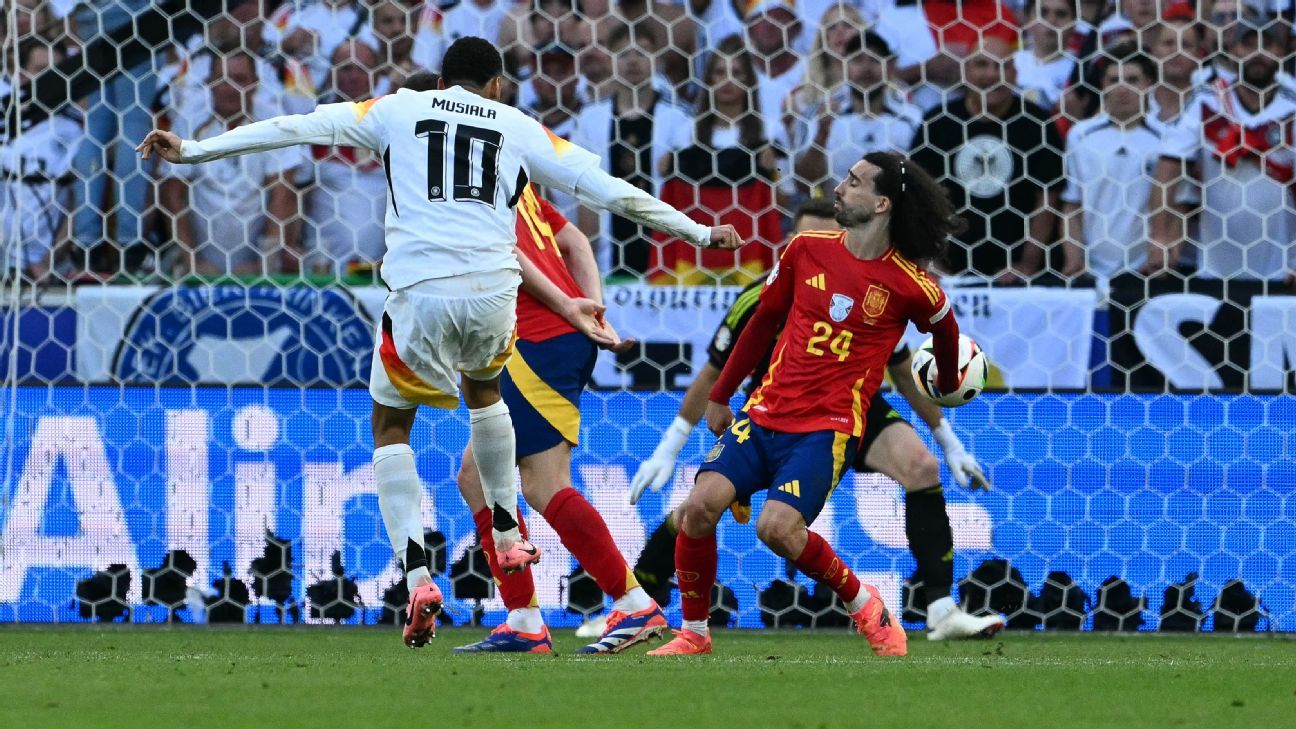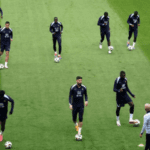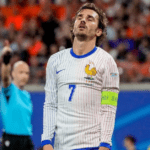On Friday, Spain’s narrow 2-1 victory over Germany in the Euro 2024 quarterfinals was marred by a controversial decision involving a potential handball by Marc Cucurella in extra time. As Jamal Musiala’s shot was blocked by Cucurella’s arm, the German players vociferously appealed for a penalty. Referee Anthony Taylor, however, waved away their claims, and VAR Stuart Attwell confirmed the on-field decision. This incident has sparked intense debate over the interpretation of handball rules in modern football.
Spain’s Triumph and the Critical Incident
Spain’s dramatic win at the Stuttgart Arena secured their place in the semifinals, with Mikel Merino scoring a last-minute winner after Dani Olmo’s opener was canceled out by Florian Wirtz. The match was fiercely contested, with both sides displaying moments of brilliance. However, it was an incident in the 105th minute that has dominated post-match discussions. Musiala’s powerful shot from outside the area struck Cucurella’s hand, leading to loud appeals from the German team and supporters for a penalty.
The VAR Decision: No Penalty
The decision to deny Germany a penalty was upheld after a review by VAR. Attwell’s assessment concluded that Cucurella’s handball did not meet the criteria for a penalty under current UEFA guidelines. This decision has been met with mixed reactions, with many questioning the consistency and clarity of handball rules. To understand why the penalty was not given, it is essential to delve into the specifics of handball interpretations and compare this incident with a similar situation in the tournament.
Comparing Incidents: Andersen vs. Cucurella
This match’s controversy is reminiscent of a handball incident involving Denmark’s Joachim Andersen in the round of 16 against Germany. In that match, Andersen was penalized when the ball struck his arm from a David Raum cross. UEFA’s guidelines state that if the arm is in a raised or horizontal position, creating an unnatural barrier, a penalty should be awarded. Andersen’s arm was deemed to be in such a position, leading to the penalty decision.
Understanding UEFA’s Handball Guidelines
UEFA’s head of referees, Roberto Rosetti, provided clarity on handball interpretations during a pre-tournament briefing. He emphasized that if a defender’s arm is in a natural position close to the body, and not creating an unnatural barrier, it should not be penalized. This guidance was illustrated with examples of defenders with vertical arms close to their sides. In such cases, no penalty should be awarded, even in UEFA’s stricter handball regime. Cucurella’s arm position, as argued by the officials, fell within this acceptable range, leading to the decision against awarding a penalty.
The Fine Margins of Handball Decisions
The critical aspect of handball decisions lies in the arm’s position relative to the body and the player’s actions. Cucurella’s handball, while stopping a goal-bound shot, was deemed unintentional and within the natural silhouette of his body. In contrast, Andersen’s arm, while running, was considered to have created a barrier. This nuanced interpretation underscores the challenges faced by referees and VAR in consistently applying handball rules, which often come down to fine margins and subjective judgments.
The Implications and Future of Handball Interpretations
The controversy in the Spain vs. Germany match highlights the ongoing debate over handball rules in football. While UEFA has sought to provide clearer guidelines, the subjectivity involved in interpreting these rules continues to cause contention. As football evolves, there is a growing need for even more precise and consistent application of handball laws to ensure fairness and transparency in decision-making processes. The incident in Stuttgart serves as a reminder of the complexities involved and the impact such decisions can have on high-stakes matches.
Looking Ahead: Spain’s Path to Glory
Despite the controversy, Spain’s focus remains on their semifinal clash against France in Munich. Coach Luis de la Fuente’s side has demonstrated resilience and tactical acumen, and they will need to maintain their form to advance to the final in Berlin. The journey so far has been historic, with Spain achieving five consecutive wins in a major tournament for the first time. As they prepare for the next challenge, the lessons from the quarterfinals will undoubtedly shape their approach and strategy.
The debate over the denied penalty in the Spain vs. Germany match reflects the broader challenges of interpreting handball rules in football. While UEFA’s guidelines aim to provide clarity, the subjective nature of these decisions often leads to controversy. As the sport continues to evolve, refining and consistently applying these rules will be crucial to maintaining the integrity and excitement of the game. Spain’s journey in Euro 2024, marked by historic achievements and intense moments, continues to captivate fans, setting the stage for more thrilling encounters ahead.
Please check for information on the best betting sites in India – https://selectory.org/best-betting-sites/















